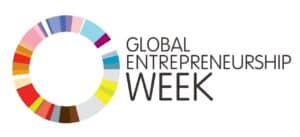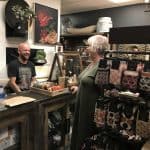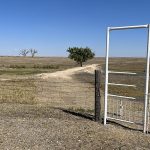Awareness of the world around you has been the start of many businesses.
The business world is filled with examples of people who started a busines based on watching, reading and listening to things around them. Being aware may lead in many directions. Sometimes the product is already around, but it just takes the right person to see the opportunities such as 3M’s Post-it ® note.
Such awareness can arise from focused research to random chance. The key is to always be attuned to your surroundings. Small town business owners often acknowledge their success came as they drove through other communities and made mental notes of what they saw and what was working.
However, developing an opportunity from an observation is more than just luck. Awareness of the present is just one part. A second element, imagining the opportunity, also is part of finding a good idea. This second part often is much harder than the first part, though.
How often have you said when a new product or idea comes out, ‘I could have done that!’? Just think of the invention of the Popsicle ®. How many of us have let a drink freeze accidently? An 11-year-old boy, Frank Epperson, did. But he saw the opportunity.
The third piece to this process is envisioning the future.
This is what Ray Kroc saw in McDonald’s ®. Here is an example of imagining where an idea, if successfully developed, might go. We also see that these moments come at any age, from the 11-year-old boy to Kroc, who was over 50 years of age when he started.
All three pieces – the idea, the opportunity and the vision – need to be part of a business owner’s effort as he or she explores business ownership. Realizing that these three elements can happen almost instantaneously or be part of a long, drawn-out process is important.
Even when all three elements come together into a perfect plan of what might be, owners must remember that solid opportunities do not connect automatically with the consumer in the marketplace. Hard work still remains.
Yet the first step in the process is that ah-ha moment. Probably the best advice for the person searching for opportunities is to be aware. In every situation, think about what might be. When you find one that makes your mind whirl with possibilities, it is time to do some further exploration.
Glenn Muske is the Rural and Agribusiness Enterprise Development Specialist at the North Dakota State University Extension Service – Center for Community Vitality. Follow Glenn on Twitter: @gmuske
- About the Author
- Latest by this Author
Glenn Muske is an independent expert on rural small business, working as GM Consulting – Your partner in achieving small business success. He provides consulting, and writes articles for county extension agents and newspapers across North Dakota. Previously, he was the Rural and Agribusiness Enterprise Development Specialist at the North Dakota State University Extension Service – Center for Community Vitality.












The idea, the opportunity and the vision – all essentials as you say, but would love it if there was more support out there for start-ups and individuals. So many people have great ideas and clear visions of where they see things going, but only a select few get the opportunity to make it happen.
That’s one of the reasons we write at this site. We want to provide the support we can from a distance, and we want to encourage as many towns as we can to offer better local support to their entrepreneurs. When your local entrepreneurs prosper, they help your town prosper.
As Becky commented, we try and provide support to those looking to develop a business idea. Communities can help by ensuring mentors and coaches are available plus by being aware of individuals and networks that exist. The aspiring entrepreneur must also be a part of the mix through researching where help can be found. And don’t forget to start with business owners in your own community. They are often willing to share and can bring the “been there, done that” conversation to the table.
I agree. Learning with every step you take whether you succeed or fail is important. The first most important thing is noticing. Then, the next important thing is taking note of that and following through with action.
Thanks Ivan. Learning doesn’t really occur until we use that knowledge